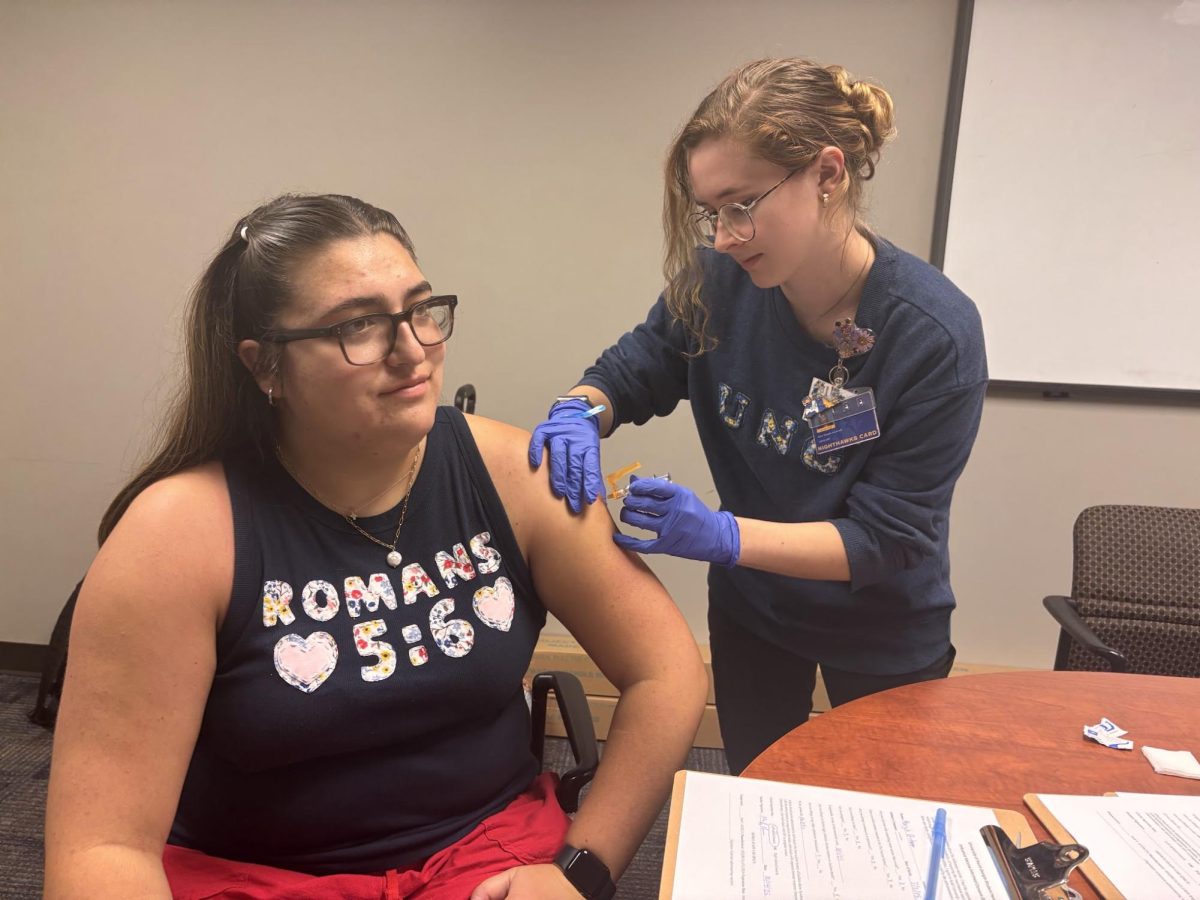
Student receiving flu vaccination at flu shot clinic in the Gainesville Student Center.
According to the CDC, flu season reaches its peak between December and February, but is active throughout the fall and winter. To counteract this, the University of North Georgia staff from Gainesville and Dahlonega’s Student Health Centers have been hosting flu shot clinics at all of the campuses, and encourages students to take preventative measures against the flu.
Physician assistant Mary Woodard from the Gainesville Student Health Center says that “prevention is the best treatment,” which is why flu shots are offered for free by UNG.
Other than getting the flu vaccine, which can help prevent flu or decrease the severity of symptoms, Woodard has other recommendations for staying healthy this flu season. Practicing good hand hygiene is imperative for students who want to stay healthy. Frequently washing or sanitizing one’s hands is important to stop the spread of germs. The Health Center offers free hand sanitizer to students and there are many hand sanitizer dispensers around campus that students can utilize.
Woodard says that “wearing a mask during flu season is also a good option,” because it helps prevent getting the flu and cold. This can be especially useful if a student is already sick in order to decrease transmission and avoid getting classmates sick.
General health and wellness should also be prioritized during this time. Students should make an effort to stay hydrated, which means drinking 3.7 liters of water for men and 2.7 liters for women. Students should also prioritize getting between seven and nine hours of sleep per night because inadequate sleep habits can weaken the immune system. Eating a healthy and balanced diet, especially foods rich in vitamin C, can also support the immune system during flu season.
Managing stress levels is another way in which students can take preventative measures against the flu. Staying active both physically and emotionally can decrease stress. The university offers counseling and has a myriad of resources available to students on the school website.
Though many people don’t feel the need or inclination to get a flu shot, getting the vaccine is a much better alternative to the fever, sore throat, runny nose, headaches and other symptoms induced by contracting the flu.
“You get the shot or else you get the snot.” – Mary Woodard, Physicians Assistant
The flu can spread like a wildfire and nobody wants to start coming down with something right before a presentation, big test or finals. It is much easier to take preventative measures against the flu than to treat the symptoms once already sick, so go get your flu vaccination today.